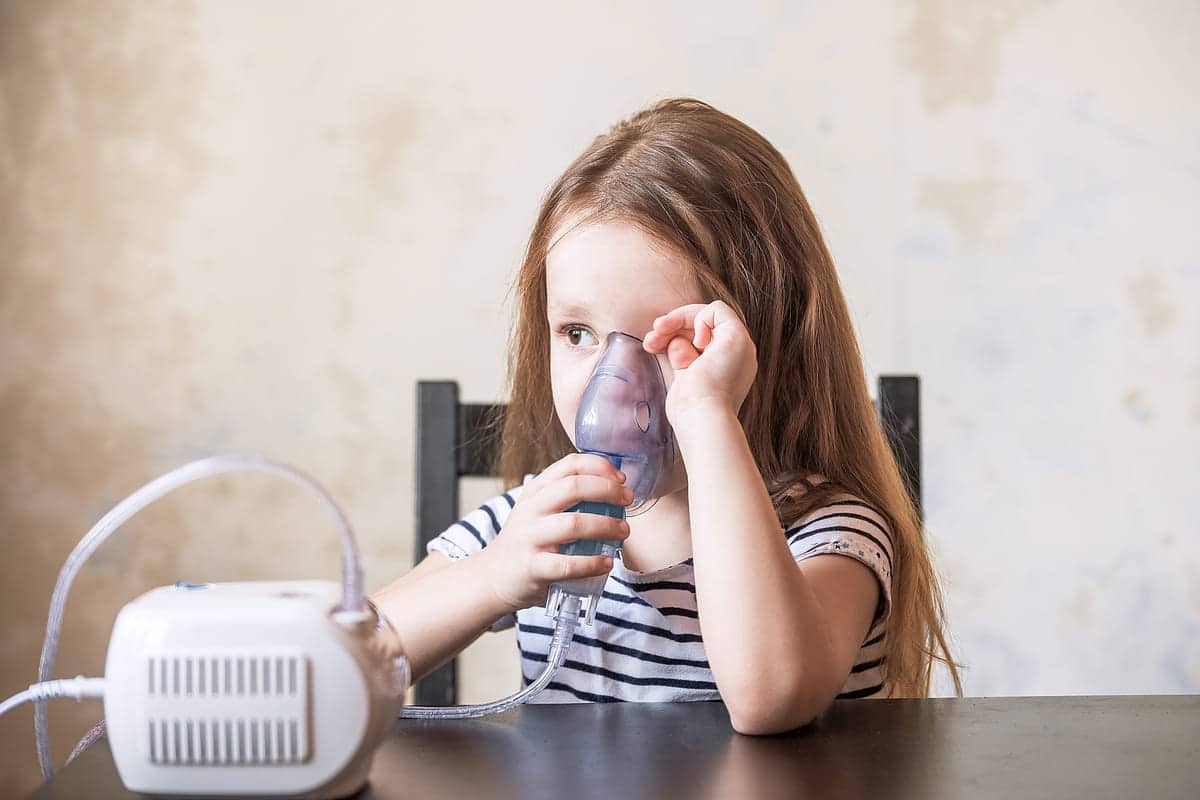Choosing the right nebulizer can significantly impact your respiratory health management. A nebulizer is a medical device designed to administer medication as a mist inhaled into the lungs. Nebulizers are particularly effective in delivering respiratory medication to infants, small children, and adults with difficulty using handheld inhalers. As a critical tool in providing medication directly to the lungs, it’s essential to understand what to look for when purchasing a nebulizer. This guide will help you navigate your options and make an informed decision about your respiratory health care. So, let’s get started!
Different Types of Nebulizers
There are three main types of nebulizers: mesh, jet (or compressor), and ultrasonic nebulizers.
- Jet nebulizers: Jet Nebulizers use compressed air to create an aerosol cloud of medication. They are generally less expensive but may be easier and faster.
- Ultrasonic nebulizers: Ultrasonic nebulizers use high-frequency sound waves to produce a mist of medication. They are usually faster and quieter than jet nebulizers but tend to be more expensive.
- Mesh nebulizers: Mesh nebulizers use a vibrating mesh to create the medication mist. These are often quiet and efficient but can be more expensive than the other options.
Why to use a Nebulizer?
People may need to use a nebulizer for their respiratory medication1 for several reasons, such as:
- Direct Delivery of Medication: Nebulizers deliver medication directly into the lungs, providing fast relief from inflammation and other symptoms associated with respiratory conditions.
- High Dose Administration: Nebulizers can administer high doses of medication quickly and efficiently, which can be particularly beneficial during acute episodes.
- Versatility: A wide variety of medications can be administered using nebulizers, enhancing their versatility in managing different respiratory diseases.
- Ease of Use: Nebulizers are often recommended for individuals who may find inhalers challenging to use, such as children or the elderly. Operating requires less coordination, making the treatment process more comfortable and stress-free.
- Symptom Relief: In some cases, nebulizer treatments can help reduce lung inflammation or open airways, relieving symptoms like wheezing or coughing.
How to Choose a Nebulizer?
When choosing a nebulizer, there are several factors to consider. These include the type of medication you’ll be using, your lifestyle and needs and any specific features that may be important for your condition.
- Medical Advice: Your doctor or respiratory therapist can guide you on which type of nebulizer is best for your specific medical needs and the medication you will use. It’s crucial to consult with your healthcare provider before making any decisions. They can provide insights based on their expertise and your medical history, ensuring you get the most effective nebulizer for your treatment.
- User Considerations: For children, look for models designed for pediatric use. These often have features like fun designs and quieter operations to make treatments less stressful. On the other hand, adult users may benefit from models with more advanced features and controls. When considering user preferences, it’s also worth considering factors like the device’s weight and ease of handling.
- Medication Compatibility: Not all medications can be used with all types of nebulizers. Certain medications may only be compatible with specific nebulizer types; verify this with your healthcare provider. Using the wrong device could alter the medication’s effectiveness, leading to suboptimal treatment outcomes.
- Portability: A portable model might be the best choice if you travel frequently or need to use your nebulizer at work or school. Portable nebulizers are generally battery-operated, typically smaller and lighter than their home-use counterparts. They offer the flexibility of use anywhere, anytime, ensuring you don’t miss out on your medication schedule.
- Features and Price: Features like fast treatment times, easy cleaning, and automatic shut-off can make a nebulizer easier to use. However, these features may also add to the cost of the device. Before purchasing, identify which features are necessary for your treatment and lifestyle. Furthermore, consider the long-term maintenance and potential replacement parts cost. Some nebulizers may be cheaper upfront but require expensive filters or parts. Balance these factors with your budget to get a device that meets your needs without overspending.
- Age, physical, and cognitive ability of the patient: The patient’s age, physical, and cognitive ability can significantly influence the choice of nebulizer. For instance, elderly patients or those with limited hand strength may find using certain devices challenging. Nebulizers that are easy to operate, with simple on/off switches and minimal assembly, could be more suitable. Likewise, children or individuals with cognitive impairment may need devices with straightforward operation and safety features like automatic shut-off.
- Noise level and battery life: Noise level could be crucial for individuals needing to use their nebulizer in public or at night. Some nebulizers may have quiet operation modes or low decibel levels to avoid causing disruptions. Similarly, battery life is essential for uninterrupted treatments on the go for portable nebulizers. Some devices may have longer battery life or extra batteries for added convenience.
These above factors help you to choose the best nebulizer for your needs. However, it’s also essential to consider the following questions while choosing the right nebulizer:
What disease are you using for?
Knowing the disease or condition you are treating is important when purchasing a nebulizer. Nebulizers are designed for different diseases and conditions, such as asthma, cystic fibrosis, and COPD 2. Knowing your specific needs will help you narrow your options and choose the right nebulizer. A jet nebulizer may be more suitable for larger medicine particles like asthma. An ultrasonic nebulizer may be better for smaller particles reaching deeper into the lungs.
Nebulizer For Lower Airway Treatment
Not all nebulizers are suitable for treating lower airway diseases and conditions. For instance, ultrasonic or mesh nebulizer 3 may be less effective in reaching the lower airways than jet nebulizers. If you have a respiratory condition affecting your lower airways, then Omron MicroAir U100 Nebulizer may be a better option. This nebulizer is designed specifically for lower airway treatments and can produce smaller, more efficient particles that can reach deeper into the lungs.
Nebulizer For Adults and Children
If you purchase a nebulizer for your child, several factors must be considered. First, check the recommended age range for the nebulizer, as some may not be suitable for younger children. Also, consider the size and weight of the nebulizer, as this can impact your child’s comfort during treatments. The Omron C28P, U100, C102 Nebulizer is designed specifically for children and adults. Also, it is lightweight and compact, making it an excellent option.
Nebulizer For Upper Airway Treatment
For conditions that affect the upper airways, such as allergies or sinusitis, a nebulizer may still be a useful treatment option. In this case, a nasal shower nebulizer 4 may be ideal as it can deliver medication directly to the upper airways. The Omron C102 Nebulizer is designed for upper airway treatments and is easy to use, making it a great choice for those with nasal conditions.

How often will you need to use the nebulizer?
Consider the frequency and duration of your treatments when selecting a nebulizer. If you require frequent or long-term use, it may be worth investing in a higher-end model with more advanced features for convenience and efficiency. However, a more basic and affordable option may suffice if you only need occasional or short-term use.
Tips to consider while buying Nebulizers
Before making a purchase, consider these tips to help you choose the right nebulizer for your needs:
- Consult with your healthcare provider 5 before selecting a nebulizer.
- Understand the type of medication you’ll be using and its compatibility with different nebulizers.
- Consider the portability and ease of use, especially if you’ll be traveling.
- Look for features such as noise level, battery life, and size to find a nebulizer that fits your lifestyle.
- Check for warranty and customer service options.
- Compare prices and read reviews from other users to ensure quality and effectiveness.
- Make sure for any additional accessories or replacement parts that may be required for maintenance.
- Always follow the manufacturer’s instructions for proper cleaning and storage to ensure the longevity of your nebulizer.
- Consider purchasing a nebulizer with a child-friendly design if children will primarily use it.
- Remember any insurance coverage or financial assistance options that may be available for nebulizer purchases.
Key Takeaways!
Nebulizers offer a practical, convenient, and versatile way to administer respiratory medications. With numerous options available, you must consult your doctor or respiratory therapist to determine the best device for your needs and lifestyle. Considering the above factors, you can ensure optimal treatment outcomes and improved quality of life. Remember to follow proper usage and maintenance guidelines for the best experience with your nebulizer.
Citations:
- 1: Respiratory medication – https://medlineplus.gov/ency/patientinstructions/000006.htm
- 2: Nebulizer – https://www.asthmaandlung.org.uk/symptoms-tests-treatments/treatments/nebulisers
- 3: Nebulizer For Lower Away Treatment – https://www.sciencedirect.com/topics/medicine-and-dentistry/nebulizer#:~:text=Nebulizers%20work%20by%20creating%20a,spinning%20disc%2C%20and%20ultrasonic%20nebulizers.
- 4: Home Nebulizer For Upper Way Treatment – https://my.clevelandclinic.org/health/drugs/4254-home-nebulizer
- 5: Nebulizer use – https://www.dramgenic.com/blogs/news/nebulizer-buying-guide-things-to-know-before-you-buy










![Home Renovation Guide [2025]](/app/uploads/2021/04/design-hacks-1-378x300.jpg)
